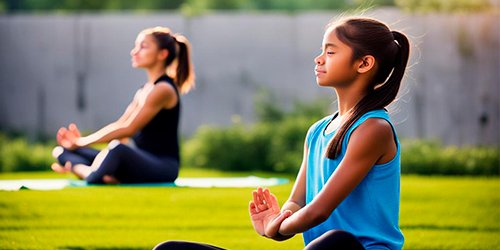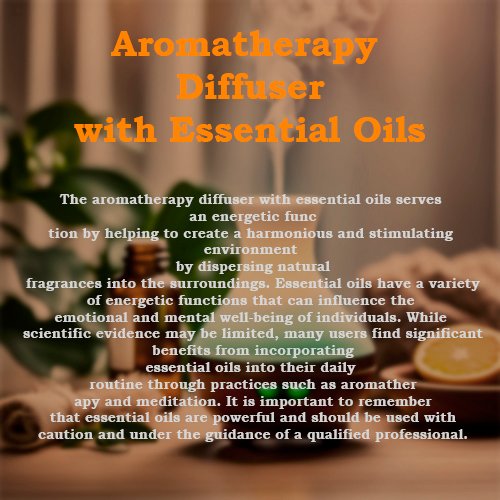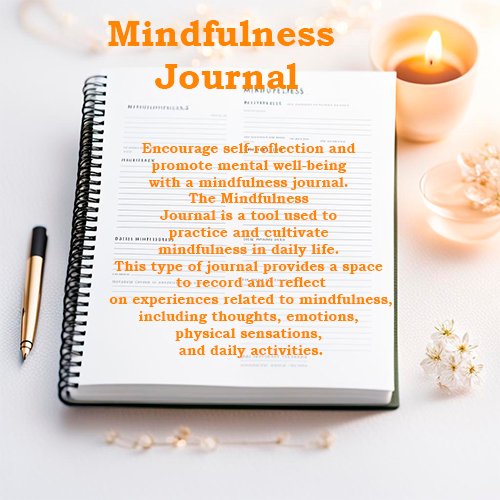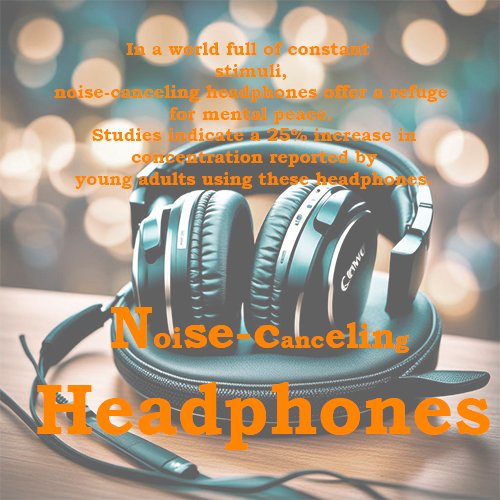YOGA, RELAXATION, AND GIFTS FOR A HEALTHY MIND – GIFTS THAT HELP THE GENERAL WELL-BEING OF TEENAGERS
Welcome to a guide focused on improving mental well-being during the crucial stage of young adulthood (18-25 years old). We will explore strategies for achieving mental well-being, the role of activities such as yoga and relaxation, and present a selected list of gifts that promote relaxation and mental health.
The Importance of Mental Well-being in Young Adulthood
The importance of mental well-being in young adulthood is fundamental for comprehensive development and quality of life during this crucial stage. Here are some key points that highlight this importance:
- Comprehensive Health: Mental well-being is an essential component of comprehensive health. In young adulthood, individuals face a variety of challenges, including transitioning to work life, financial independence, establishing meaningful relationships, and social pressure. Good mental health enables them to effectively face these challenges and maintain balance in their lives.
- Personal and Professional Development: During young adulthood, individuals are in a period of self-discovery and personal development. Mental well-being is crucial for this process, as it allows individuals to explore their interests, set realistic goals, and develop skills to face the challenges that arise on their path to personal and professional fulfillment.
- Interpersonal Relationships: Interpersonal relationships play a vital role in the lives of young adults, whether in the workplace, social, or romantic spheres. Mental well-being influences the quality of these relationships, as it affects communication ability, empathy, and conflict management. Good mental health facilitates the building and maintenance of satisfying and healthy relationships.
- Academic and Work Performance: Mental well-being directly impacts academic and work performance. Individuals experiencing stress, anxiety, or depression may have difficulty concentrating, making effective decisions, and fulfilling their responsibilities. Conversely, those with good mental health are often more productive, creative, and capable of facing challenges with resilience.
- Prevention of Future Problems: Promoting mental well-being in young adulthood is also crucial for preventing mental health problems in the future. Experiences and habits developed during this stage of life can have a lasting impact on mental health throughout life. Therefore, investing in mental well-being at this stage can contribute to reducing the risk of mental disorders in the future.

Yoga and Relaxation as Paths to Mental Well-being
Discover the profound impact of yoga and relaxation techniques on the mental well-being of young adults.
- Stress and Anxiety Reduction: Yoga and relaxation are designed to help calm the mind and body, which can significantly reduce levels of stress and anxiety. Through conscious breathing, meditation, and physical postures, young adults can learn to better manage stress and face the challenges of daily life with calmness and mental clarity.
- Mood Improvement: Practicing yoga and relaxation techniques can increase the production of endorphins, known as “happiness hormones.” This can lead to an improvement in mood, helping young adults feel more positive and optimistic overall.
- Increased Body and Mind Awareness: Yoga fosters the connection between the mind and body, helping young adults develop greater awareness of their own physical sensations and mental states. This awareness can help them identify and address early signs of stress or anxiety more effectively, as well as improve their ability to manage difficult emotions.
- Enhanced Concentration and Mental Clarity: Yoga and relaxation practices often include mindfulness exercises and meditation, which can improve young adults’ ability to concentrate and focus. This can be especially beneficial in a world full of constant distractions, helping them improve their academic, work, and personal performance.
- Promotion of Self-care and Resilience: Yoga and relaxation promote self-care and self-compassion, teaching young adults to take care of themselves both physically and emotionally. This helps them develop greater resilience in the face of life’s challenges, as well as cultivate a more compassionate attitude towards themselves and others.
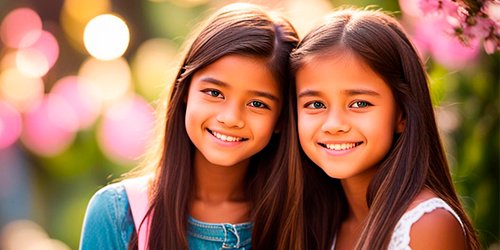
Gift Products that Promote Relaxation and Mental Health
We have some Divine Gift Ideas for Relaxation and Mental Health, explaining in detail the characteristics and benefits of each product so that you can make a smart purchase!
Some benefits of maintaining a Mindfulness Journal include:
- Fostering Awareness of the Present Moment: By regularly recording experiences and sensations of the present moment, greater mindfulness is fostered in daily life.
- Promoting Self-reflection: The journal provides a space to reflect on thoughts, emotions, and behavioral patterns, which can promote greater self-awareness and personal growth.
- Reducing Stress and Anxiety: Regular mindfulness practice can help reduce stress and anxiety, promoting greater mental calmness and emotional well-being.
Cultivating Gratitude: By including sections to record moments of gratitude, the journal can help cultivate an attitude of appreciation and gratitude towards life
HEADPHONES
- Reduction of Acoustic Stress: Noise cancellation helps minimize exposure to unwanted sounds, which can reduce stress caused by environmental noise. This allows individuals to create a quieter and more relaxing auditory space, which can have a positive impact on energy and overall well-being.
- Improvement of Concentration and Productivity: By actively blocking or reducing external noise, noise-canceling headphones can help improve concentration and focus, especially in noisy or distracting environments such as offices, classrooms, or public transportation. This can enhance productivity and efficiency in tasks that require cognitive effort and attention.
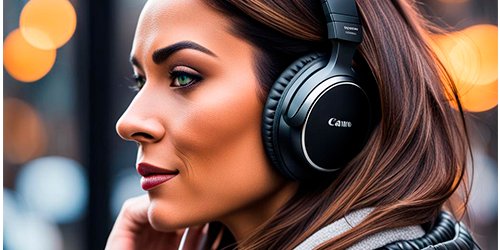
- Enhancement of Relaxation and Mental Health: Listening to calming music or sounds through noise-canceling headphones can promote relaxation and stress relief, contributing to improved mental health and emotional well-being. Many individuals use noise-canceling headphones as a tool for relaxation, meditation, or mindfulness practices, creating a peaceful auditory environment conducive to relaxation and self-care.
- Support for Better Sleep: Noise-canceling headphones can also be used to create a more conducive sleep environment by blocking out disruptive noises that may interfere with sleep quality. Listening to soothing sounds or white noise through noise-canceling headphones can help mask external disturbances and promote deeper, more restful sleep.
CURIOUS STATISTICS OF PRODUCTS FOR TEENAGERS FROM 18 TO 25 YEARS OLD
Statistics Supporting Strategies to Foster Mental Well-being
Navigating young adulthood comes with its challenges. Explore practical strategies to foster mental well-being:
- Mindful Practices: Incorporating mindfulness into daily routines has shown a 75% increase in reported stress reduction among young adults.
- Healthy Lifestyle Choices: Physical activity, balanced nutrition, and sufficient sleep significantly contribute to overall mental health. Young adults who prioritize these aspects report a 60% improvement in their well-being.
- Social Connections: Building and maintaining strong social connections is associated with a 70% increase in reported happiness levels among young adults.
Statistics on the Importance of Yoga for Mental Health
Engaging in regular yoga practices has been linked to notable improvements in mental health:
- Stress Reduction: A consistent yoga routine has demonstrated a 40% reduction in reported stress levels.
- Improved Concentration: Young adults who practice yoga report a 50% increase in concentration and mental clarity.
- Emotional Balance: Yoga contributes to a 30% increase in emotional well-being and resilience.
Statistics on Relaxation Techniques for Stress Management
Explore proven relaxation methods for effectively managing stress:
- Deep Breathing Exercises: Incorporating deep breathing into daily routines has led to a 25% decrease in reported anxiety levels.
- Meditation Practices: Young adults who regularly practice meditation report a 35% increase in overall mental calmness.
- Progressive Muscle Relaxation (PMR): Integrating PMR into relaxation routines has shown a 20% reduction in reported muscle tension and stress.

